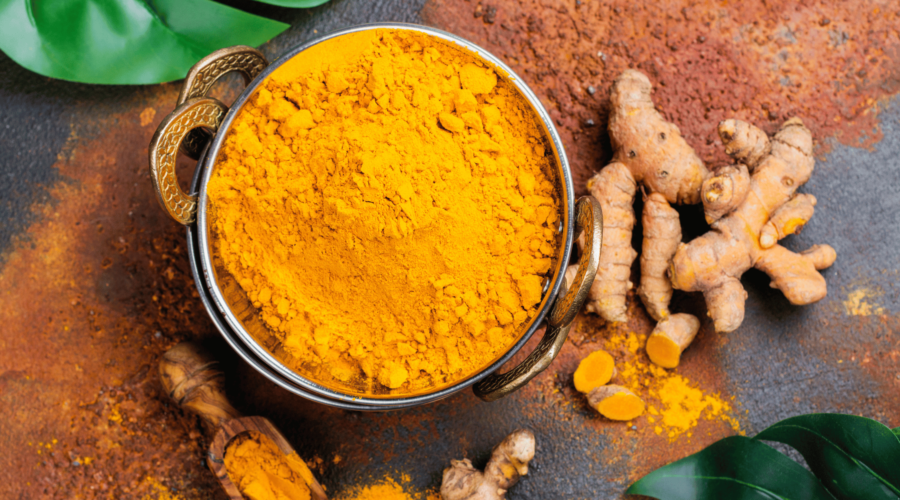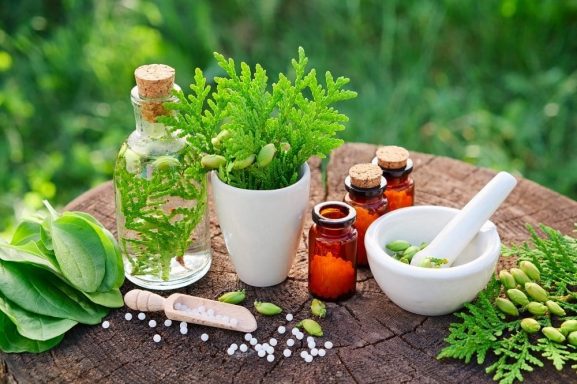Complementary therapists often swear by a selection of herbs and spices which like to rely on to enhance overall health and wellbeing. Although the selection is likely to vary from therapist to therapist, here is a list of ten that are particularly loved by holistic health experts across the globe.
1. Turmeric
Turmeric is renowned around the world for its powerful anti-inflammatory and antioxidant properties. Most famously, it contains curcumin, which is believed to help reduce inflammation and pain.
How to Use: Add turmeric to curries, smoothies, or teas to benefit from its healing properties.
2. Ginger
Ginger is highly regarded and widely used for its digestive and anti-nausea benefits. It’s also believed to be great for reducing muscle pain and soreness.
How to Use: Use fresh ginger in teas, stir-fries, or baked goods. Ground ginger can be added to soups and stews.
3. Lavender
Lavender is beloved for its relaxing smell which is said to have calming and soothing effects. It’s commonly used to reduce anxiety, improve sleep, and alleviate headaches.
How to Use: Lavender can be used in teas, essential oils, and even in cooking as a flavouring for baked goods.
4. Peppermint
Peppermint is most popular for its ability to ease digestive issues, reduce headaches, and improve mental clarity.
How to Use: Fresh or dried peppermint leaves can be used in teas, while peppermint oil is great for topical applications and aromatherapy.
5. Chamomile
Chamomile is famous for its calming effects and is often used to improve sleep, reduce anxiety, and soothe digestive issues.
How to Use: Chamomile tea is the most popular way to enjoy its benefits. It can also be used in skin care products.
6. Echinacea
Echinacea is commonly used to boost the immune system and help fight off colds and infections.
How to Use: Echinacea can be taken as a tea, tincture, or supplement, especially during cold and flu season.
7. Rosemary
Rosemary is known for its memory-boosting properties and its ability to improve concentration and digestion.
How to Use: Use rosemary as a seasoning in cooking, or as an essential oil for aromatherapy.
8. Sage
Sage is valued for its anti-inflammatory and antioxidant effects. It’s also known to improve brain function and digestive health.
How to Use: Fresh or dried sage can be used in cooking, especially in meats and sauces. Sage tea is also a popular option.
9. Thyme
Thyme is packed with vitamins and is known for its antiseptic and antibacterial properties, making it great for respiratory health.
How to Use: Thyme can be used fresh or dried in cooking, particularly in soups, stews, and roasts.
10. Cinnamon
Cinnamon is loved for its ability to regulate blood sugar levels and its powerful antioxidant properties.
How to Use: Add cinnamon to your morning porridge, smoothies, or baked goods to enjoy its health benefits.
Final Word
By incorporating these herbs and spices into your daily routine, you can harness their powerful benefits and support your overall health and wellbeing. Complementary therapists and holistic health experts often recommend these natural remedies to enhance their treatments and promote a holistic approach to health.
DISCLAIMER: The Site cannot and does not contain medical / health advice. The medical / health information is provided for general informational and educational purposes only and is not a substitute for professional advice. Accordingly, before seeking any form of medical advice, diagnoses or treatment based upon such information, we encourage you to consult with your GP or other qualified health practitioner. You must never disregard professional medical advice or delay in seeking it because of something mentioned on this Site. The use or reliance of any information contained on the Site is solely at your own risk.



